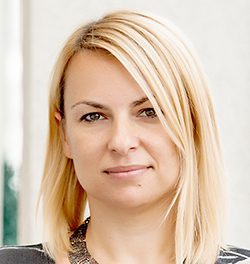
Diplomatic training has been transformed by technology: diplomats now have access to vast amounts of information and resources, and diplomatic training can be conducted online. Other aspects, such as new approaches in knowledge management and the range of new skills diplomats need to learn, have also changed how diplomatic training is conducted.
These were the issues discussed during the second WebDebate, held on 3 May, by two practicing diplomats with rich experience in diplomatic training: Mr Stefano Baldi, Minister Plenipotentiary and Training Director, Ministry of Foreign Affairs and International Cooperation of Italy, and Ambassador Milan Jazbec, Ministry of Foreign Affairs of Slovenia.
Throughout the WebDebate (watch the recording), the online audience interacted with the speakers through many comments and questions. The lively discussion and interaction was moderated by Dr Katharina Höne from DiploFoundation.

Amb. Jazbec stressed the interplay between tradition and evolution in diplomacy. Diplomacy could be understood as a dynamic social process that depends primarily on historical and social contexts. When it comes to resources for learning diplomacy, Amb. Jazbec categorised books on diplomacy as:
- handbooks, manuals, instructions (a must)
- diplomatic theory books
- diplomatic memoirs (which provide a variety of contexts in which diplomacy often materialises)
- diplomatic anecdotes (which provide plenty of information in a short and concise form)
- novels on diplomacy
Amb Jazbec stressed that it was important for diplomats to accumulate as much knowledge as possible. He also explained that while there is a variety of handbooks that theorise on diplomacy, it is important to put diplomacy in a broader social and historical context. In addition to their day-to-day work, diplomats are also interact and engage with the international community.
Mr Baldi added that today, we do not learn only from books; rather, the learning process combines tradition and innovation, which are also the two elements that are inherent in the diplomat’s work. Books can be seen as the traditional way of acquiring knowledge. Memoirs are a good example of sharing traditions and experiences with younger diplomats, as sharing is as important as studying. As for the innovation, technology has made an impact on the learning process. In addition to books, the younger generation uses visual tools for learning (such as TedX, documentaries, radio programmes, and tutorials). These tools should not replace books; rather, these can be seen as additional resources and tools that can help us learn.
Ambassador Kishan S. Rana joined the discussion to bring up few aspects. He stressed the importance of distance learning, as a particularly effective method for the profession whose members are typically distributed abroad. Since it is costly to bring people to the home country for face-to-face training, distance learning has a special role. He also pointed out the new approach in learning that diplomatic academies are pioneering, which relies on diplomats managing their own learning process. In such a process, they need to engage in a group and in the exchange of personal experiences.
Amb. Jazbec noted that while reading is important, it was also useful to discuss, simulate, and implement the knowledge gained. Diplomats need to have a cutting edge. They need to advance and progress, which needs to be firmly rooted in tradition. They also need innovation to help them adapt to current situations. This can be view as a synergy between innovation and tradition.
Mr Baldi concluded that one cannot learn diplomacy from books; diplomats require experience. In the long run, experience is as important as knowledge itself. Amb. Jazbec expressed his preference for sticking to tradition, but being open to innovation.
Registrations for the next WebDebate are now open. Join us on 7 June, at 11 UTC; if you form part of a dynamic circle of diplomacy practitioners in your community, we encourage you to establish a diplomatic hub to follow the WebDebates and to facilitate discussions.
The WebDebates on the future of diplomacy are livestreamed on the first Tuesday of every month. They are organised by DiploFoundation within the framework of the International Forum on Diplomatic Training (IFDT). Learn more about our series of WebDebates.



